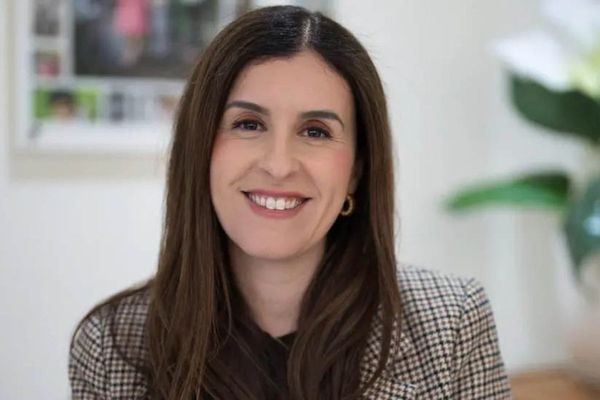Brisbane City Council has been accused of taking a short-sighted approach to the housing crisis and for failing to draw from modelling.
Lord Mayor Adrian Schrinner announced in the budget on Wednesday the council would slap an extra 50 per cent on top of rates bills for properties that were rented as short-term accommodation on sites like Airbnb and Stayz.
The new policy was designed to force more homeowners to return their properties to the general rental market.
But the council did not have exact data on how many short-term accommodation properties operated in Brisbane, and would rely on owners identifying themselves, along with reports from neighbours and "technology", to find the properties.
Cr Schrinner said Brisbane's rental vacancy rate for May was just 0.6 per cent.
Short-term accommodation data analysis company AirDNA estimated about 3,600 homes were currently listed on sites like Airbnb across the greater Brisbane area, including in Ipswich and parts of Moreton Bay and Logan.
But University of Queensland researcher and economic and urban geographer Dr Thomas Sigler said "fairly high" premium Airbnb properties would easily cover a potential increase in rates of between $500 and $1,000.
"More importantly, we are talking about a small number of dwellings, as less than 2 per cent of Brisbane dwellings are listed on Airbnb.
"The difficulty in enforcing this is the fact the majority of units are only rented part-time, so would this be calculated pro rata?"
Dr Sigler also said a key component of Brisbane's successful bid for the 2032 Olympic Games was ensuring the city had capacity to host large numbers of visitors.
"We calculated this at 80,000 in Brisbane, including from Noosa to the Tweed," he said.
"The more immediate impact is a potential shortage of hotel rooms deterring visitors from medium stays in Brisbane."
Calls to lift ban on townhouses instead
Queensland Council of Social Service chief executive Aimee McVeigh did not believe the extra financial penalty would deter Airbnb.
She said reversing the council's 2020 ban on townhouse and apartment developments in low-density areas, including inner-city suburbs like Paddington and Ashgrove, and working with the state government to "implement mandates for new developments to include social and affordable housing quotas, would make a bigger difference" to the housing crisis.
"I think it's really good to see the Lord Mayor acknowledge the squeeze in the rental market in Brisbane," Ms McVeigh said.
"It is really important local government has robust housing policies, but if we look at this closely, what it really means is that those investors would pay about an extra $10 a week to list their homes on Airbnb.
"There is no data on how many of these properties exist [or] how big a problem this is."
With 50,000 people on the social housing register, Ms McVeigh said all governments needed to look at a variety of policies but "this one wouldn't get into the arena".
She said regulations such as one enacted by the NSW government, which capped the number of days a property could be listed on the short-term rental market, had already led to more properties coming onto the long-term rental market in places like Byron Bay.
More investigation required
Real Estate Institute of Queensland's (REIQ) chief executive officer Antonia Mercorella had a mixed reaction.
She described the council's transitory accommodation policy as using a "stick rather than a carrot approach".
Ms Mercorella said REIQ supported incentives to boost long-term rental stock but the rental crisis was a "significant and large problem".
"We'd like to see both state and local governments looking at why there are property owners opting to go down the path of the short-term or holiday-letting market versus the long-term rental market," she said.
"For instance, given tourist-driven demand, we need to recognise that the holiday-letting market can be incredibly lucrative with high return over a short period of time, and allows flexibility for property owners to use the property themselves."
But she said another key factor is that the "short-term market is not regulated with the strict and onerous rental laws that govern the long-term rental market".
The rates increase would not impact owners that only lease out a single room, granny flat or shared accommodation, but would directly target owners of entire properties listed for overnight stays.
The council's measure would also only apply to properties rented out on the short-term market for more than 60 days a year.
Policy should be at a 'state level'
Online property rental companies said the rates discrimination would "hurt guests and the broader community".
Airbnb Australia and New Zealand manager Susan Wheeldon said a time of rising costs and economic uncertainty was "not the time for making sudden policy changes without consultation".
"Housing affordability and availability is a complex issue with a range of contributing factors, such as population movements, the supply of new homes, the ratio of public housing, interest rates and broader economic conditions," she said.
"Airbnb welcomes the opportunity to work constructively with council towards common-sense regulatory initiatives backed by sound evidence."
Airbnb also said it provided diverse accommodation that would be necessary for large events such as the 2032 Olympics, the FIFA Women's World Cup in 2023 and the men's and women's Rugby World Cup matches in 2027 and 2029 respectively.
Stayz director of government affairs Eacham Curry said the holiday rental industry brought about $201.5 million to the Brisbane region and, before the COVID-19 pandemic, supported nearly 1,500 jobs.
"It doesn't make sense to then punish mum and dad homeowners by imposing higher rates or unfairly restricting how they can and can't use their properties," Mr Curry said.
"We support a code of conduct for the whole sector and believe this should be done uniformly across all of Queensland at a state level like New South Wales and Tasmania have already done.
"We also caution against arbitrary fees that will fail to resolve housing supply issues and are not substantiated by data or consultation."
In a recent survey of 2,578 Australian hosts, about 35 per cent used Airbnb to earn money to help cover the rising cost of living, another third said they used the income to make ends meet, and 38 per cent said hosting helped them stay in their home during 2021.







